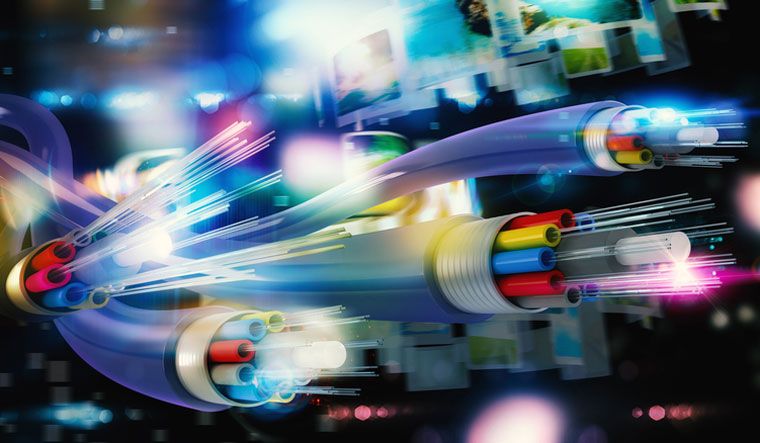Fiber War: Competition Hurdles in South Africa’s Telecom Industry

Africa is not new to fiber-optic networks. According to some estimates, African nations have installed more than 1.389 million kilometers of terrestrial fiber lines, 936,000 of which were up and running in 2018. What Africa is new to is fiber war, and it might just be a completion hurdle that improves digital acceleration in Africa.
The opportunity for digital growth in Africa is enormous, but it will be crucial to make sure that it is widely available and inexpensive. This will therefore require substantial funding from financiers, equity investors and competitions from stakeholders.
When finished in 2024, the 2Africa cable system, the largest undersea project to date, would encircle the entire African continent with a 23,000-mile high-speed subsea cable, landing in 16 different countries and doubling the continent’s total internet capacity. The Equiano undersea cable project will have landing sites in South Africa, Namibia, and Nigeria along the continent’s Atlantic coast. 2022 is the projected completion date for the project’s initial phase, which connects South Africa and Portugal.
Google’s Equiano Cable Arrives in Swakopmund, Namibia
Africa is still far behind much of the rest of the world in terms of fiber network and broadband connectivity, spectrum, and data center processing capabilities, despite the potential for improved internet access and related infrastructure to have a significant impact on the continent. However, thanks to compelling investment incentives, sub-Saharan Africa’s internet infrastructure is expanding quickly, but not evenly.
Fiber connectivity has traditionally been reserved for South Africa’s wealthier districts, leaving low-income areas with few options and forcing residents to choose mobile broadband services. But the tide is turning to reverse this. Recent activities and event are pointing towards a fiber war that will advance fiber-optic connectivity to low-income areas.
The Fiber WAR-riors
As more people were driven to work and study from home due to the pandemic, Fiber Network Operators (FNOs) competed to outdo one another by providing consumers with faster speeds or lower prices. The upgrades were passed on to users through Internet service providers (ISPs), which led to significant increases in network traffic.
Frogfoot was one of the first to implement its upgrades permanently. However, when it redesigned its fiber and copper products in February 2021, Telkom’s wholesale and networks division OpenServe truly set the stage for long-lasting improvements.

Openserve became the most-preferred fiber operator in South Africa, according to Analytico’s 2022 South African Broadband and ISP Brand Report. Vumatel, Vodacom, Frogfoot, and Metrofibre follows respectively. The research is based on survey responses gathered in May 2022 from 5,973 broadband subscribers in South Africa.
Vumatel has been making tremendous progress in other areas, despite the fact that Openserve now enjoys favor in the middle-class fiber market. Its Vuma Reach has already expanded into areas with lower incomes by providing more cheap uncapped fiber packages on a prepaid basis. Vumatel is testing a new Vuma Key service aimed at homes with monthly earnings below R5,000 as a result of this product’s overwhelming popularity.
Additionally, Openserve and Frogfoot have introduced more reasonably priced entry-level fiber offerings in a few locations under the names Openserve Web Connect and Frogfoot Air.
In order to more effectively compete with Vumatel, Openserve made its 20Mbps Web Connect product accessible on prepaid terms, making it simpler for families with variable incomes to purchase.
The Fiber War
Telkom and MTN revealed in July that talks had begun about MTN acquiring Telkom’s full issued share capital in exchange for shares of MTN or a combination of cash and MTN shares. There is no guarantee that the purchase “will be consummated,” according to the operators, who noted that the conversations are still in their early stages. Additionally, there was no mention of the price MTN was willing to pay for Telkom, which the South African government still owns 40% of.
However, the Congress of South African Trade Unions (COSATU) has openly opposed MTN’s proposed acquisition of Telkom, citing earlier, more significant mergers that resulted in job losses. Will fewer telecoms offer similar products for competition and market outcomes? In the business world, there’ll be consolidation, the emergence of mergers, and exits. But these trends have effects on both the market and individuals. No one has the answer to how this will turn out if it happens. Nonetheless, analyses have differed on the development.
What Will be the Cost of MTN’s Imminent Telkom Takeover?
Openserve’s last-mile fiber network reaches over 890,000 residences in South Africa, according to a trading report from Telkom, with a connectivity rate of 46.6%. Openserve is once again neck-and-neck with South Africa’s upstart fiber leader Vumatel with over 414,847 consumers connected to its fiber network. Vumatel announced in July that around 450,000 consumers were linked to its fiber network.
MTN is currently the second-largest mobile operator behind Vodacom, with 34.5 million members. Interestingly, the two largest mobile operators in South Africa are now looking to acquire shares in the two largest providers of fiber in the country. MTN is pursuing the acquisition of Telkom, in an effort to compete with a prospective merger of Vodacom’s fiber network and Vumatel. Industry insiders think MTN isn’t after Telkom’s spectrum, but rather its huge fiber holdings.
The Ouut’s Take
South Africa’s fiber-based broadband subscriptions represent almost half of all fiber-based broadband subscriptions in sub-Saharan Africa. Imagine the might of that. With the brewing fiber war, fiber-based broadband is going to accelerate at an increasing rate, mitigating the challenges that have held it.
The digital divide in Africa is still quite noticeable. Less than one-third of Africans can connect to broadband. Africa accounts for 21 of the world’s 25 least connected nations. 8 More than 50 kilometers separate 300 million Africans from a fiber or cable broadband connection. Africa’s internet penetration, at barely 36%, is much behind the 62.5 percent global average. All of these might just be about to change and South Africa is the country leading this change.
